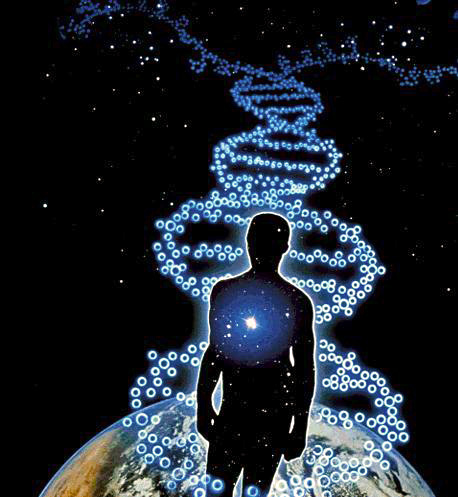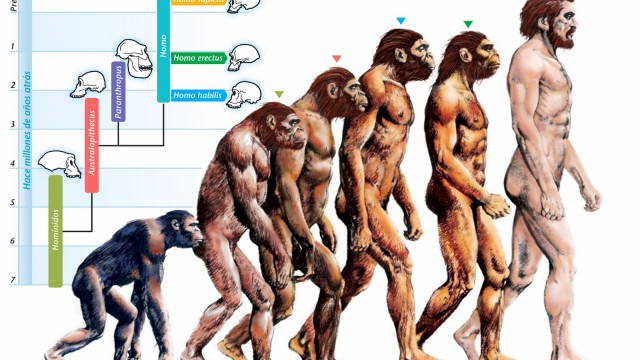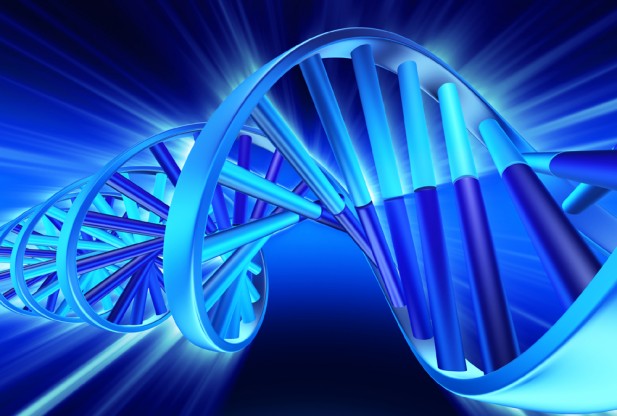It has become fashionable amongst the intelligentsia to offer an evolutionary apologia for all manner of human unintelligence. Adaptive justifications for obesity, religious belief and even political leanings have become au courant with pundits and pandits. Like all intellectual fads however, this one offers no real insight, while encouraging fatalistic irresponsibility.
 A simple version of the evolutionary apologia is: My genes made me do it. A more sophisticated verbosity has philosophers of evolutionary biology, whatever that means, saying things like, “all organisms, and I include us humans, are the end product of a long, slow process of development thanks to the causal mechanism of natural selection…and that includes society and culture.”
A simple version of the evolutionary apologia is: My genes made me do it. A more sophisticated verbosity has philosophers of evolutionary biology, whatever that means, saying things like, “all organisms, and I include us humans, are the end product of a long, slow process of development thanks to the causal mechanism of natural selection…and that includes society and culture.”
Such a leap is nothing more than a stumble, all the more obvious because the grasping intellect far exceeds the grasp of insight. “Causal mechanisms of natural selection” is code for rooting human behavior in evolutionary adaptation. That position is false on the face of it when one observes how maladaptive humans have become on the earth.
But it doesn’t stop there. The evolutionary apologia has descended into gobbledygook like this: “A substantial genetic component between religious importance and conservatism suggests that there may be a common underlying predisposition that leads individuals to adopt conservative bedrock social principles and political ideologies while simultaneously feeling the need for religious experiences.”
As close as I can make out, this is academic jargon for the commonsense notion that people are born with personality traits that incline them in one direction or another politically and religiously. The effect of such blather is to keep us in the dark about ourselves while pretending to throw light on the issue of polarization.
Such muddiness has gone mainstream in the most influential newspapers in America and the West. The writer above goes on to suggest that genetic differences make someone who takes a strong position on a hot-button issue “irreconcilably alien to a segment of the electorate.” To promote such ideas is to promote division, rather than finding common ground, and further individual and societal fragmentation, rather than healing.
Another trendy example of the evolutionary apologia pertains to obesity. Rather than address the issue at the level of “speeded-up societies that breed bored, stressed, impulsive and compulsive behavior, including binge eating and constant eating,” the same pundit lazily explains away fattiness in the developed world by saying “we’re hardwired through evolution to keep our body weight up.”
Meanwhile the country that once proclaimed, “Give me your tired, your poor, your huddled masses yearning to breathe free, the wretched refuse of your teeming shore,” has been reduced to mobs screaming that desperate children from Central America won’t enter their precious cities. It’s not hard to find an explanation in man’s animal past for that kind of atavistic behavior either.
The more we blame nature, the more we expose the lack of nurture for our children. Evolutionary explanations, when not linked with individual responsibility for change, don’t just clog the media; they clog the mind.
Evolutionary theory, when applied to the psychological realm and society, isn’t advancing understanding,  only non-responsibility. Indeed, evolutionary explanations for human behavior nurture helplessness and hopelessness. Not because they remove the agency of the self, but because they put the hard issues and questions beyond our reach. Issues and questions like conditioning, conflict and chaos.
only non-responsibility. Indeed, evolutionary explanations for human behavior nurture helplessness and hopelessness. Not because they remove the agency of the self, but because they put the hard issues and questions beyond our reach. Issues and questions like conditioning, conflict and chaos.
There is a great paradox in human existence. Evolution gave us the capability, through the evolution of ‘higher thought,’ to fragment the earth all to hell as we’re doing. But it also gave us the capacity, through awareness, self-knowing and questioning, for insight and understanding, and thereby for transcending the tendencies for which evolutionary apologists have become so facile at offering.
In talking about evolution we are inevitably, if implicitly, talking about our conceptions about God. Most Christians don’t believe in evolution (though that’s like saying, ‘I believe or don’t believe in gravity’) because God to them is a ‘Supreme Being’ that willed the universe and man into existence. People like Richard Dawkins make straw men out of the straw men and women who still hold such views, rather than tackle the really hard questions that evolution poses, such as the problem of evil.
For them, what used to be called the riddle of man is solved by a belief in the fundamental chaos and total randomness of the universe, and they hold such articles of faith with just as much rigidity as the anti-evolutionists hold theirs. It’s not unfair to say they are two sides of the same coin.
What is the alternative to this infinite regression into the mists of our evolutionary past? It begins by realizing that the disconnect between humans and nature cannot be healed by placing the onus on the anus of nature. Blurring the line between Homo sap and nature only makes humans more confused and destructive.
Humans are fundamentally different than all other species. That difference is due to ‘higher thought,’ which we refuse to examine, because we think it is the source of both our prowess but and our humanness, when it is actually the source of our destructiveness and deterioration as a species.
The alternative is to take complete responsibility for ourselves as individuals. Most people would agree, without seeing that taking complete responsibility for oneself also means taking responsibility for humanity as a whole.
That doesn’t mean changing oneself will change the world, even though it would if enough people did. In any case, changing oneself the only thing we can change. And that’s hard enough.
Martin LeFevre

